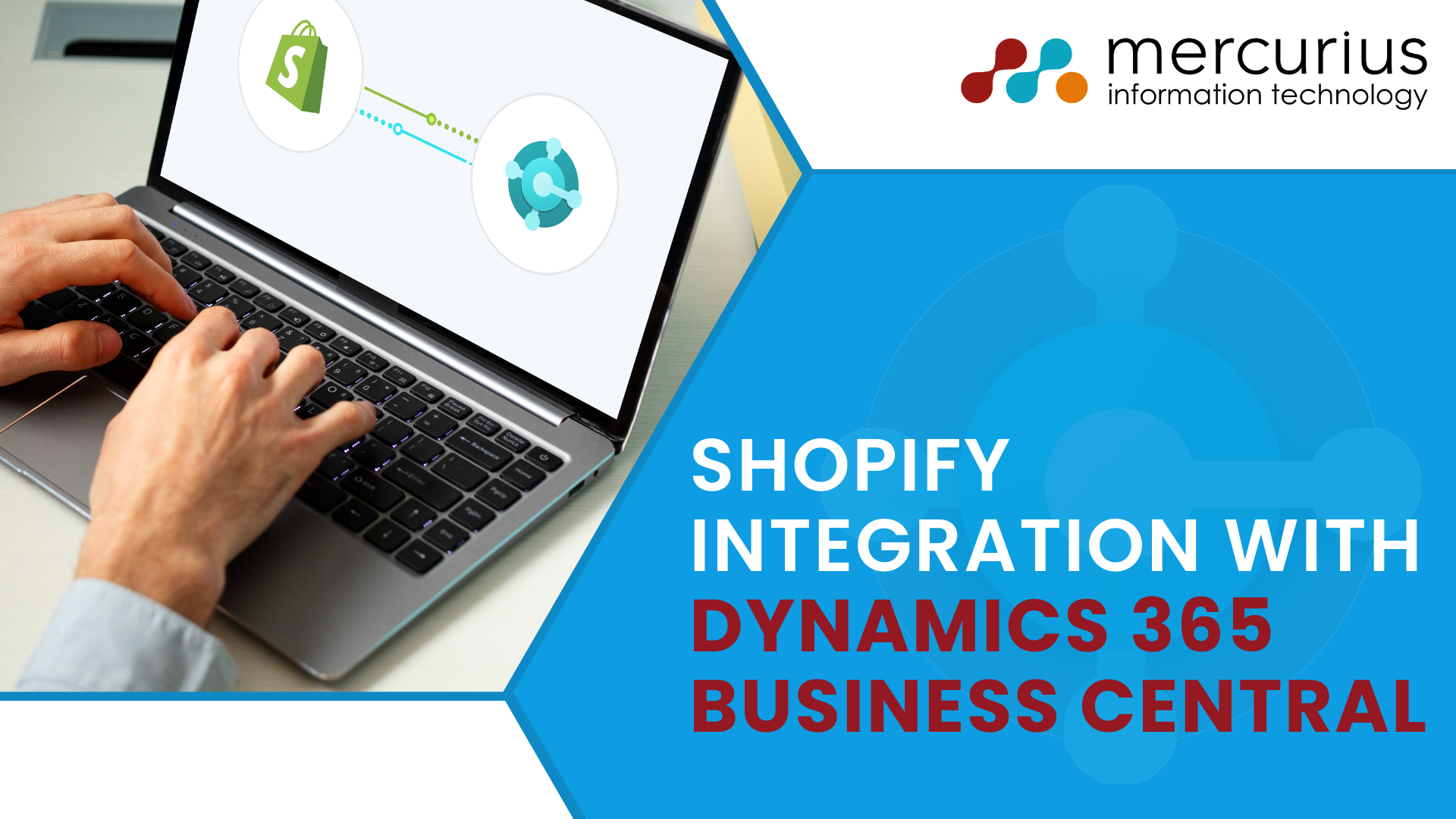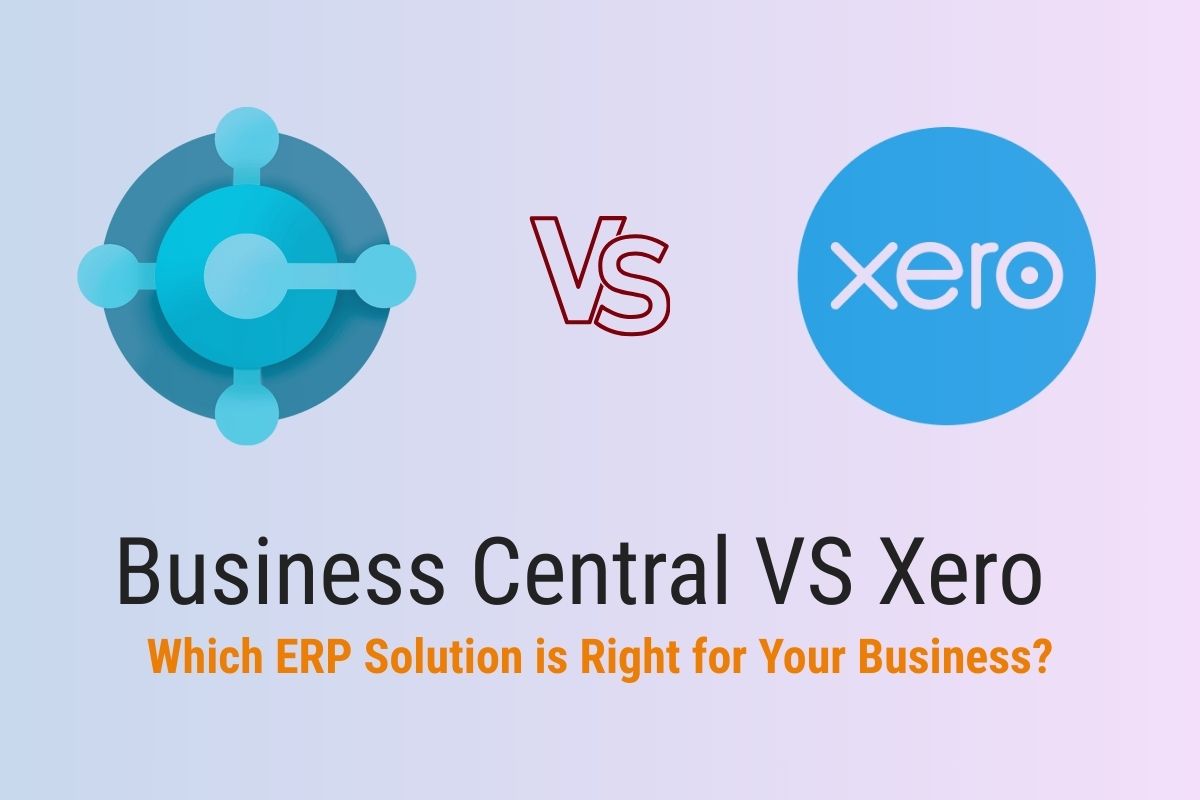As e-commerce continues to grow, businesses require integrated systems that reduce inefficiencies and provide real-time data across platforms.
For organisations using Shopify as their e-commerce platform, integrating it with Microsoft Dynamics 365 Business Central offers a powerful way to unify operations, reduce manual work, and enhance customer experiences.
This seamless connection, part of Microsoft’s ongoing updates, empowers businesses to synchronise orders, stock, and customer information with ease.
At Mercurius IT, we understand the complexities involved in managing multiple systems and the challenges posed by scaling e-commerce operations.
That’s why we specialise in helping businesses take full advantage of the Shopify and Dynamics 365 Business Central integration to improve efficiency, ensure data accuracy, and maintain a competitive edge.
The Power of Integrated Systems
In 2022, Microsoft announced a partnership with Shopify as part of the Release Wave 1 update for Dynamics 365 Business Central. This integration removes the need for third-party tools or custom developments, offering a native connection between these two powerful platforms.
The integration helps businesses consolidate critical data across e-commerce and ERP systems, which improves visibility and operational control. By syncing inventory, pricing, and customer information, organisations can reduce manual input, minimise errors, and focus on scaling their business.
Whether managing one Shopify store or several, Business Central can handle multiple currencies, pricing tiers, and entities, offering the flexibility businesses need to grow in the modern marketplace.
Joining forces with Shopify to integrate Microsoft Dynamics 365 Business Central will help more merchants deliver great experiences to their customers by seamlessly linking commerce and ERP.”
Increased Visibility Across Operations
One of the standout benefits of integrating Shopify with Dynamics 365 Business Central is the improved visibility it offers across all business processes.
Data that once lived in silos—such as inventory levels, order histories, and customer details—becomes accessible in real-time across both platforms.
This allows businesses to respond faster to customer enquiries, fulfil orders more accurately, and make informed decisions based on comprehensive, up-to-date data.
For instance, when an order is placed on Shopify, the integration automatically updates Business Central with customer details, inventory adjustments, and financial records.
This eliminates the need for manual entry, significantly reducing the risk of duplicate or incorrect data.
At Mercurius IT, we help our clients configure this automated synchronisation to suit their specific workflows, ensuring that they can focus on scaling their business rather than managing data.
Improving Efficiency with Automation
The integration’s ability to streamline operations through automation is invaluable for businesses looking to grow efficiently.
By eliminating the need to manually update inventory, order statuses, or customer information, companies can save time and resources while reducing the risk of errors.
For example, the integration allows for bi-directional synchronisation of inventory levels and product information between Shopify and Dynamics 365 Business Central.
This means that updates to product details, prices, and stock levels made in one system are automatically reflected in the other, allowing businesses to avoid stockouts and pricing inconsistencies.
It also enables organisations to make real-time decisions based on accurate data, improving their ability to respond to market changes or customer demands.
As a result, businesses can optimise their order fulfilment processes, ensuring faster deliveries and more satisfied customers.
This increased efficiency extends to financial management as well, as the integration automatically records transactions in both systems, making it easier to generate accurate financial reports and comply with local tax regulations.
Enhanced Financial Management
Managing finances is a key area where integrating Shopify with Dynamics 365 Business Central delivers significant value.
Every transaction processed through Shopify is automatically reflected in the ERP system, providing businesses with an up-to-the-minute view of their financial health.
Mercurius IT works with businesses to set up workflows that ensure all Shopify sales, tax calculations, and shipping costs are captured correctly in Business Central. This eliminates the need for reconciling data across different systems, reducing the potential for financial discrepancies.
Additionally, our clients benefit from the ability to generate comprehensive financial reports that combine e-commerce data with other revenue streams, simplifying tasks such as tax preparation, auditing, and forecasting.
The automation of these financial processes not only saves time but also improves accuracy, helping businesses avoid costly errors and maintain compliance with local and international regulations.
Streamlined Customer Management
Customer satisfaction is key to long-term success in e-commerce, and having accurate, up-to-date customer data is essential for delivering exceptional service.
The Shopify and Dynamics 365 Business Central integration ensures that customer data is consistently synchronised across both systems, providing businesses with a unified view of their customers.
Businesses can configure the integration to synchronise customer information such as purchase history, contact details, and order status, all in real-time.
This enables them to respond quickly to customer enquiries, process returns and refunds more efficiently, and offer personalised recommendations based on previous purchases.
Moreover, the integration includes features such as customer segmentation and price groups, which allow businesses to tailor their marketing and sales strategies to specific customer segments, improving engagement and driving loyalty.
Simplifying the Integration Process with Mercurius IT
While the integration between Shopify and Dynamics 365 Business Central offers immense benefits, setting it up requires careful planning and configuration to ensure it delivers maximum value.
As an experienced Microsoft Solutions Partner, we provide expert guidance through every step of the process, from assessing your business needs to configuring synchronisation rules and testing workflows.
Step 1: Assessing Business Requirements
Every business has unique requirements when it comes to e-commerce and ERP integration.
Start with a thorough analysis of your current Shopify setup, identifying key areas for improvement, and determining which data points need to be synchronised between Shopify and Business Central.
This may include product catalogues, customer data, and order histories, among others.
Step 2: Selecting the Right Tools
Microsoft’s native Shopify connector is a robust solution, but some businesses may benefit from additional third-party tools or custom APIs.
Based on your specific requirements, we help you select the right integration method, ensuring that the solution is scalable and aligned with your business goals.
Step 3: Configuring and Testing
Once the appropriate tools are selected, Mercurius IT will handle the configuration of the integration, setting up workflows for inventory management, order processing, and customer data synchronisation.
Thorough testing is conducted to ensure data flows seamlessly between the two systems and that your operations can continue without disruption.
Step 4: Ongoing Support and Training
After the integration is live, we provide ongoing support to ensure your team is fully trained and equipped to make the most of the system. We also offer continuous monitoring and updates to ensure the integration remains optimised as your business evolves.
Business Central Shopify Connector capabilities
- Support for more than one Shopify shop
- Each shop has its own setup, including a collection of products and locations used to calculate inventory and price lists.
- Bidirectional synchronisation of items or products
- The connector synchronises images, item variants, bar codes, vendor item numbers, extended and marketing texts, and tags.
- Export item attributes to Shopify.
- Use selected customer price groups and discounts to define prices exported to Shopify.
- Define prices and discounts for product catalogues linked to B2B companies.
- Decide whether items can be created automatically or only allow updates to existing products.
- Synchronisation of inventory levels
- Choose some or all of the available locations in Business Central.
- Update inventory levels on multiple locations in Shopify.
- Bidirectional synchronisation of customers and companies
- Smart-map customers by phone and email.
- Use specific country/region templates when creating customers, which helps ensure that tax settings are correct.
- Import orders from Shopify
- Include orders created in various sales channels, such as online store, Shopify POS or B2B.
- Shipping costs, gift cards, tips, shipping and payment methods, transactions, and risk of fraud.
- During import, you can automatically create customers in Business Central or decide to manage the customers in Shopify.
- Receive payout information from Shopify Payments.
- Track fulfillment information
- Optionally, choose to transfer item tracking information from Business Central to Shopify.
- Headless integration
- Enable automatic synchronisation of products, inventory, orders, fulfilments, and more.
The integration of Shopify and Dynamics 365 Business Central is a critical step for businesses looking to streamline their e-commerce operations, reduce inefficiencies, and improve customer experiences.
With Mercurius IT’s expertise, businesses can implement this integration smoothly, ensuring that all aspects of their e-commerce and ERP systems are working in harmony.
By automating workflows, centralising data, and improving financial and customer management, this integration empowers businesses to grow with confidence and remain competitive in an increasingly digital world.
Let Mercurius IT help you unlock the full potential of your Shopify and Dynamics 365 Business Central integration, allowing you to focus on what matters most—scaling your business.
Get in touch today or leave your details in the contact form below to get started.
Interested in implementing Dynamics 365 Business Central to your business?
Leave your details in the contact form to get started.







